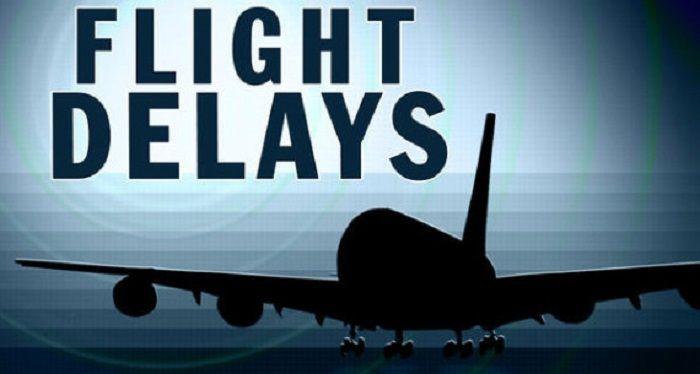How To - Cope with Airport Delays
Nothing throws a wrench into your travel plans quite like airport delays. And there's no shortage of reasons why your flight might be late: unpredictable weather, technical glitches, airport security problems, congested airways etc etc.
Whether flying saucers or snowstorms are keeping you grounded, it's important to know how to protect yourself in the event of a flight delay. First, you need a backup plan. Make sure you have options, like a hotel reservation or an alternative flight, in case you're stranded. Second, you need to know your rights as a passenger. Airlines aren't required by law to compensate passengers for delayed or cancelled flights, and each carrier has its own policy on this. Read (or at least have access to) your airline's contract of carriage in case of emergency.
For more on what rights you have as a flier, check out your passenger rights.
Let's get on to what you can do about it if (hopefully not "when") an airport delay happens to you. Here are a few tips to help you cope in the event of software switches, storms or other airport problems.
1. Watch the weather.
When it comes to the weather, you don't need to be Michael Fish to know when a storm might affect your travel. If you are flying in winter, there's no excuse not to know at least a couple days ahead of time that your flight could be threatened. Particularly in the case of a winter storm, weather forecasting is pretty reliable 48 - 72 hours out. Summer storms can be less predictable, as thundercloud formation can occur fairly quickly. But forewarned is forearmed, and it's not like you need to look for red skies in the morning of your travel these days to know that you might have a problem.
2. Consider getting a hotel reservation.
Some hotels don't charge your card until you show up at the front desk, so you can usually safely book a room and cancel if your flight does take off reasonably on time. Make sure to ask about cancellation policies to be on the safe side when you call.
If you're stuck in an airport without easy Internet access, a good tactic is to have on hand the phone number of your preferred booking website. When using this tactic, check out airport hotels first. Look for off-airport hotels that offer shuttle service to the airport so you can ditch your rental car or otherwise count on a ride to the airport without too much trouble or expense.
3. Pre-program your mobile phone.
You don't need an elephant's memory to be able to call a reservation site, a hotel, your airline or any travel service outfit; you just need to program these numbers into your mobile phone before your trip starts. Save the contact number for your airline (use the frequent flier program phone number if you have elite status of any kind, as the service is better), reservation sites, car rental companies that permit drop-offs near you, and your travel agent if you have ever used one -- even if the agent didn't book you into your current jam, he or she might be able to get you out of it.
4. Know your options.
If it looks like things might get ugly, make sure you know some of the alternative flights on other airlines; if this is too much to remember, just try to remember on which airlines the best flights are available. This way, when 100,000 people are on hold, you're on the phone with another airline figuring out whether they will honour your tickets and can book you onto the next flight. If you know a few flights on a couple of airlines within a few hours of your original flight, you're way ahead of the game when you try to transfer your ticket to another airline. Ultimately you'll have to get your original airline to sign off on the transfer, but at least you'll get to the airline desk armed with information and maybe even a tentative reservation on the other airline.
A good way to do these searches is to use one of the Skyscanner sites The best of these allow you to adjust several parameters on the fly, including airlines displayed (in case your original airline will grant exchanges only on select airlines), flight times (so you can see flights close to your original departure time first, then expand from there) and alternate airports (perhaps you can get within a reasonable drive of your original airport). You can also filter results by the duration of your itinerary, in case you are looking at absurd routes, connections or layovers on some of your results. These sites can offer a very fluid and customisable view of what is available to you airline by airline, hour by hour, airport by airport.
5. Check the airline website.
In the past, airline call centres have been utterly crippled by the high call volume that happens when there are masses of flight delays. Most airlines have figured out that the Web is a much better way to distribute information, and will have alerts, updates and sometimes even suggestions on how to proceed.
6. Call ahead to the airline.
This is likely to be your least effective tactic, as in all but the most extreme cases (and sometimes not even then), the airlines won't tell you that your plane is delayed even when the entire airport is about to shut down. This is because the airlines fare better if you show up and sleep on the floor than they do if they let you stay in your hotel room an extra day.
And of course always have the correct Travel Insurance Policy that covers airport delays and cancellations.
Happy traveling
For more information on airport delays like us on Facebook



